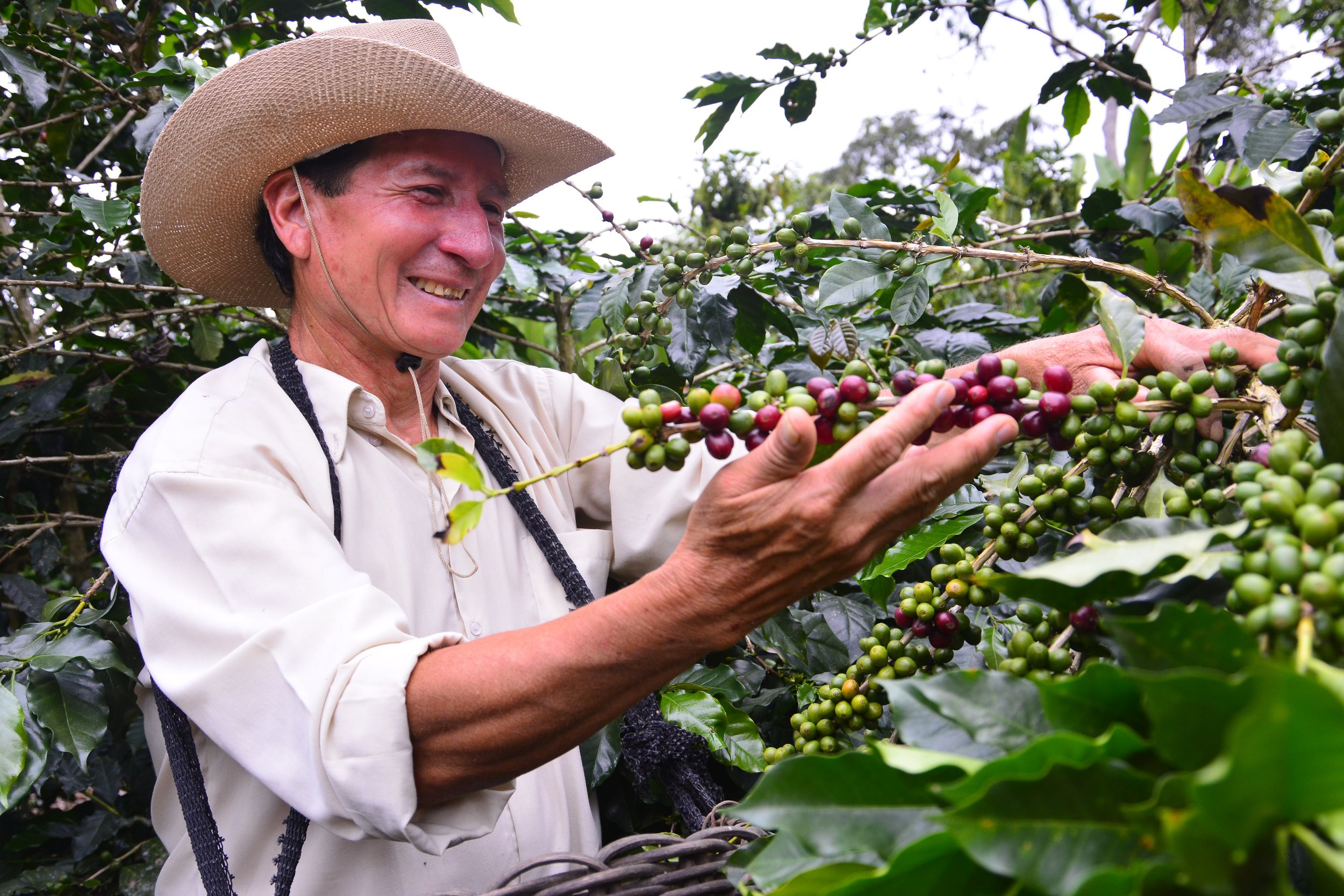Peruvian Coffee’s Cultivation and Sustainable Development
Coffee producer from Lamas, San Martín region. Credit: Gohan Tubbeh/PROMPERÚ
Article Written by Coffees from Peru
Peruvian coffee continues to position itself in the international market for its high quality and for its particular characteristics that can be felt by consumers in each sip.
To get this valuable product into the hands of consumers, diverse production processes are carried out, many of them under international normative guidelines. In this way, it contributes to a sustainable production that benefits Peruvian coffee growing families in the present and in the future.
Credit: Heinz Plenge/ PROMPERÚ
Alternative Crop Development
Coffee and cocoa are two important crops supported by internal government initiatives as an alternative to drug production. This support creates opportunities to integrate producer families into formal economies. The National Commission for Development and Life without Drugs (DEVIDA) was created in 1999 to lead and implement the National Anti-Drug Policy, coordinating public and private entities, as well as the international community, to reduce the impact of drug supply and demand in an effective and sustainable manner. In 2012, DEVIDA implemented its "Integral and Sustainable Alternative Development Budget Program," which supports coffee producer families by promoting their products in different markets. To date, this program has benefitted 19,752 families by improving their economy and integrating them into international markets.
Compliance with European Regulation
In April 2023, the European Union (EU) parliament approved the regulation on deforestation, which bans products from deforested land. The regulation will be applied as of January 2025 and will apply to various products, including coffee.
In this regard, Peru's Ministry of Agrarian Development and Irrigation (Midagri, in Spanish) has developed the Agricultural Producers Register (PPA), a database for georeferencing coffee, growing areas and traceability software.
It has also developed a mobile application, Digital Identity of the Agricultural Producer, which allows quick and easy plotting of the polygons of the plots (“georeferencing”), which consists of knowing precisely when the crop was planted and whether it was grown at the expense of the forest. In its first stage, it is expected to benefit more than 6,000 producers.
All these actions are intended to generate deforestation-free certificates, which are one of the requirements for implementing the European standard.
PROMPERÚ, the Peruvian Export and Tourism Promotion Commission, has been conducting workshops on the due diligence of the European regulation, i.e., the measures that companies must take to identify and act before possible risks.
In this way, producers learn about the deadlines associated with the regulation, best practices for complying with the requirements, among other points.
The effective implementation of these practices will not only strengthen product traceability but will also ensure that Peruvian exports continue to comply with international standards, thus promoting sustainable and responsible trade.
Credit: Daniel Silva/ PROMPERÚ
Fair Trade
Precisely, coffee growers in Peru have also been betting on the Fairtrade seal , a certification that guarantees—mainly—that the producers grow their crops in a sustainable manner.
This practice generates economic benefits for the producer, since those coffee growers that have the Fairtrade seal receive a premium, an additional amount to the sale price of conventional coffee.
Peru occupies first place in volume of Fairtrade coffee sales in the world, with a little over 51,000 tons, and also leads in organic production.
International Support Programs
In order to continue with the sustainable development of coffee, the coffee sector has the support of international institutions.
One of these is the support of the United States Agency for International Development (USAID) through integral interventions, through programs linked to coffee.
These include the Specialty Coffee Community Project in the regions of Lima, Junín, Cusco and Puno; the Alliance for Coffee Excellence (CAFÉ) project in the regions of Huánuco and San Martín; and the Development of Coffee and Quinoa Chains in Perú project in the regions of Junín, Ayacucho and Apurímac.
Currently (2024), the "Coffee and Forests Collective Action Agreement" has been implemented between the private sector, public sector, civil society and international cooperation, whose objectives are:
a.) Analyze coffee supply chains, establish policies and actions to be developed that will lead to a deforestation-free coffee supply.
b.) Promote sustainable production and restoration of degraded areas within or near production areas, in accordance with the legal framework.
c.) Develop a monitoring and traceability system in the coffee production chain.
All these actions are aimed at promoting coffee growing families in global economies and complying with international regulations.
For additional information please contact: exportaciones@promperu.gob.pe
About Coffees from Peru
The Commission for the Promotion of Peru for Exports and Tourism (PROMPERÚ) works in line with the Peruvian coffee guilds, to boost the coffee industry and promote the recognition of the attributes of Peruvian coffee in the international markets.
In 2018, the exclusive brand “Coffees from Peru” was launched, whose objective is the promotion of conventional and specialty Peruvian coffees. This brand is inspired by a footprint that represents its own identity as well as acting as a symbol of the origin of Peruvian coffee. The same year, Peru launched the National Action Plan for Peruvian Coffee. The action plan aims to position Peru as a producer, exporter, and consumer of sustainable quality coffee by 2030. Through the plan, Peru’s coffee industry will adapt to climate change and be recognized worldwide for its innovation, competitiveness, and solid institutional frameworks—these will directly benefit coffee-growing families and all actors in the Peruvian coffee ecosystem.




